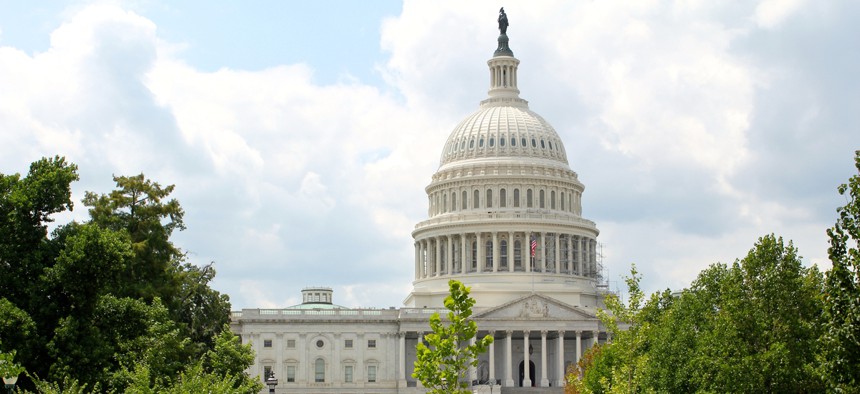Federal Housing and Transportation Spending Bill Moves to Senate

The U.S. Capitol building. Shutterstock
Programs key to local and state government would largely see either steady funding or spending increases.
The U.S. Senate Appropriations Committee approved legislation Thursday to largely boost or maintain spending on housing and transportation programs crucial to state and local governments.
A similar bill was approved last month by the House appropriations panel. The Senate’s $71.4 billion measure increases spending on programs by more than $1 billion over 2018 levels.
The bill, which passed unanimously to head to the floor, would spend $1 billion on competitive BUILD grants, which were previously called TIGER grants. That’s $250 million more than the House bill would allocate to the popular transportation grant program.
It also keeps $3.3 billion for the Community Development Block Grant program, which Sen. Susan Collins, a Maine Republican, noted President Trump's administration had proposed eliminating entirely. Collins, who leads the subcommittee that wrote the bill, said her most frequent request from other senators was to preserve the grants, which are used for affordable housing, infrastructure improvements and other projects in low-income areas.
“That program is especially important to states and local communities because it allows for the development of local solutions to address the particular economic development and affordable housing needs of each community rather than imposing a one-size-fits-all federal approach,” Collins said.
The Senate panel approved $1.4 billion for HOME affordable housing grants, which the White House had also proposed to scrap.
For transportation, the Senate bill would spend almost $27 billion on discretionary appropriations for the U.S. Department of Transportation, about $698 million less than current levels. HUD would get $44.5 billion, an increase of $1.8 billion.
Earlier this week, Senate Majority Leader Mitch McConnell announced he would cancel the Senate’s traditional August recess, saying the extra time could be used to approve spending legislation and consider Trump's nominees for federal judgeships. Federal fiscal years begin on Oct. 1, but Congress in recent years hasn’t approved full-year appropriations bills, but instead passed a series of short-term spending plans.
In March, Trump signed a $1.3 trillion spending package that boosted funding for almost all agencies through the end of the federal fiscal year. But he immediately criticized the deal and the administration since then has sought to “clawback” some of the spending.
Laura Maggi is the Managing Editor of Government Executive's Route Fifty and is based in Washington, D.C.
NEXT STORY: Missouri Audit Flags Suspicious SNAP Benefit Use by Deceased, Out-of-State Recipients






